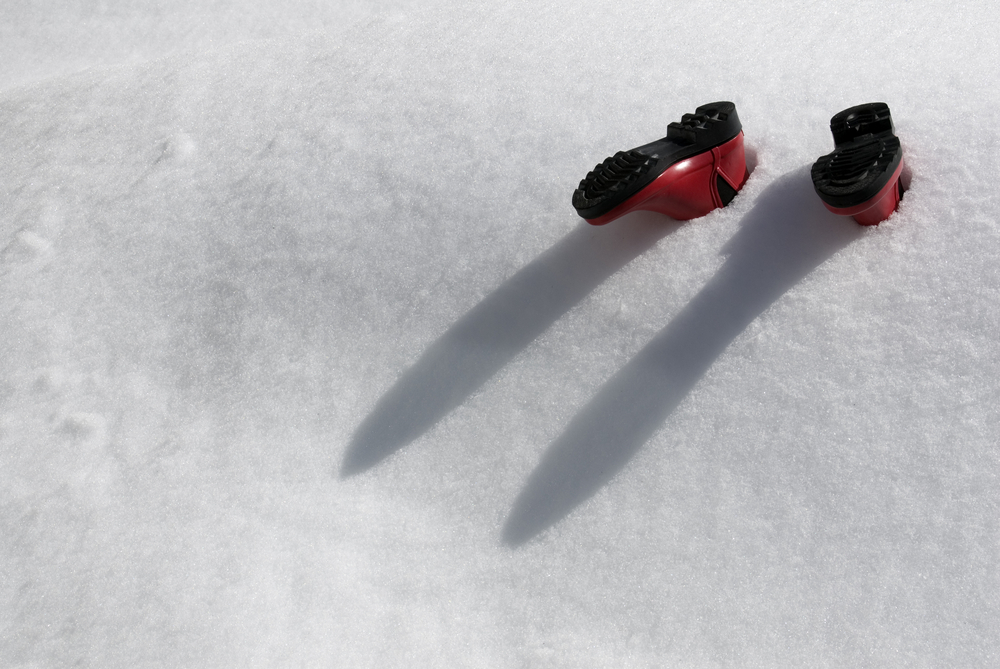Winter Storms Wreaking Havoc on Boston’s Restaurant Industry

Photo via Shutterstock
They’ve tried everything: snow shoe valet, a place to put your skis, all-day ramen, cold weather soups and grogs, dollar oysters, half-price prix fixe menus, scratch-made hot chocolate, and perhaps the most enterprising, free appetizers with an Uber receipt. Maybe you’ve been plugged into the popular hashtag, #OpenInBOS, or follow establishments like West Bridge, Kirkland Tap & Trotter, or Bondir on Twitter and Facebook. All three of those restaurants—as well as countless other eateries—have attempted one, if not several of the aforementioned promotions. Such desperate measures may seem straight out of the TGI Fridays or Olive Garden playbook, but it’s a sobering reminder of just how creative some of the city’s finest chefs and restaurateurs have had to get in order to fill dining room seats in an increasingly snow-ravaged city.
“We’ve always tried to stay open, from the beginning, just to serve our community and our neighborhood,” says chef Tony Maws (Kirkland Tap & Trotter, Craigie on Main). Through three major snow storms in the past three weeks, Maws has resorted to housing staff members in nearby hotels while offering cut-rate tasting menus and discounted bar bites at his two popular, high-profile establishments. “As much as I’m a proud New Englander and happy to see everyone outside skating and playing hockey, there’s a part of me that’s going batshit crazy. Margins are in the restaurant industry are already teeny and now we’re trying just to hold on,” he says.
Massachusetts Restaurant Association president Bob Luz paints an even bleaker picture, saying the recent barrage of bad weather could mirror the long-term effects seen after the Blizzard of ’78. “There’s no doubt that snow greatly affects the restaurant industry, but with this type of prolonged event, everything just gets compounded. What you have to realize is that these are sales that restaurants never recoup. Just as an example, if you had to cancel a haircut appointment because of bad weather, you’ll just reschedule and go back later in the week. But if you decide to not go out to eat before the Beanpot, it just doesn’t happen. The closures and lack of business are having a big effect on our employees because they’re not getting work and not earning money. And these employees are often local to the area where they work. That’s why we’re urging people to get out and support their neighborhood restaurants.”
As Puritan & Co. chef-owner Will Gilson points out, January and February are typically two of the slowest months in the restaurant industry. But in the two-and-a-half years his popular Inman Square spot has been open, Gilson says he’s never seen it quite this bad. Whereas Valentine’s Day and the residual profits of New Year’s and Christmas are often enough to sustain a restaurant through the grittier parts of a slow winter, 2015 is proving much more challenging.
“Most restaurants know how to weather this kind of stuff, no pun intended,” Gilson says. “What’s becoming really worrisome though, is our ability to keep our staff on. When you start cutting back, it becomes this precarious give and take. We obviously want to keep all of our great team while also meeting our own high standards, but at some point rent becomes a concern. Let’s say you prepare for 60 covers one night and only sell 15. That’s a lot of wasted food. Mitigating your costs becomes the priority. We’re doing anything to keep people interested, mainly through social media, but unfortunately we’re all fighting for the same group of people.” Yesterday, Gilson tweeted that he had to send home two staffers after they spent two hours trekking to work.
David DuBois, CEO of the Franklin Restaurant Group (Tasty Burger, Citizen Public House) hasn’t seen major losses around his Harvard Square and Fenway properties yet, but he chalks that up to luck more than anything. He concedes those two high foot-traffic areas are an anomaly, and places like South Boston (where Tasty Burger has a location) that are more reliant on cleared streets and public transportation, are suffering.
“I think it’s going to be a historically bad first quarter in Massachusetts,” DuBois says. “You just can’t sustain this many storms in a row. The city has been in a constant gridlock because of the snow and a lack of parking. What I worry about the most, to tell the truth, is people hitting tax season and recovering from Christmas. They have to make money. This is the worst time for servers and bartenders to be out of work. I’m worried about our teams. If we closed, even for a couple days, those people aren’t getting paid. The thing that would really help us now is for the city to clear these neighborhoods. In ’78, they commandeered the parking garages to help people out. I don’t even know if that’s legal today, but I think that should be on the table at this point.”
As of February 9, Boston had already set a record for the most snow recorded in a 30-day period, with 71.8 inches, breaking the record of 58.8 inches set in February 1978. Now the city seems on the brink of even more harrowing marks as some reports predict at least two more storms by Valentine’s Day weekend. How long can chefs and small business owners remain positive without some type of major intervention? How far can you stretch the enterprising spirit without succumbing to large-scale layoffs? And even after public transport woes are alleviated and Boston is able to clear its roadways, what will be the long-term impact?
“The one saving grace is that these storms keep happening on Mondays and Tuesdays when restaurants are traditionally slower anyways,” Luz says. “The storms not taking place on a Friday or Saturday lessens that impact. But the story here is that restaurants are open and they’re trying to have fun with it. People should feel good about going out to eat and trying to help out their neighbors. Besides, as you’ve seen, they can get themselves a really great deal.” In other words, if want your favorite restaurant to stick it out this season, then it’s time to go out to dinner.


